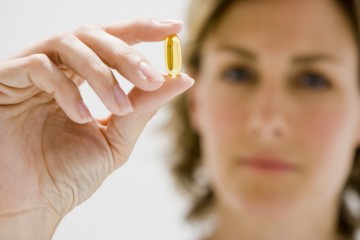Health Articles
What is a vitamin D deficiency? A vitamin D deficiency occurs when the level of vitamin D in your body is too low. Vitamin D helps the body use calcium from our diet which is essential for us as humans to maintain bone strength. If you feel you might be experiencing symptoms of a vitamin D deficiency, it is important to get tested and treated because it can eventually cause your bones to become thin, brittle or misshapen.
Why do we need adequate vitamin D? Vitamin D is essential because it helps build up calcium in your body which strengthens bone and teeth health. It decreases our risk of osteoporosis, diabetes, dementia and some cancers including breast, colon, prostate, ovarian, esophageal and lymphatic. Vitamin D also helps lower blood pressure levels and hypertension, and regulates our immune system for optimal efficiency and fighting disease. Studies have shown that it may even decrease the risk for multiple sclerosis in women.
The only way to confirm that you are suffering from a vitamin D deficiency is to get a blood test to test your vitamin D levels. You may be vitamin D deficient if you are experiencing any of the following signs or symptoms:
You have bone pain. Many people who see a doctor complaining of aches and pains in their bones are often misdiagnosed as having chronic fatigue syndrome or fibromyalgia. This is especially true if the person is also complaining of fatigue. However, these are also signs of vitamin D deficiency osteomalacia. This is different than the type of vitamin D deficiency that causes osteoporosis in adults in that the vitamin D deficiency is limiting the ability to put calcium into the collagen matrix in the bones, which can result in aches and pain in the bones.
You have gastrointestinal issues. As mentioned before, vitamin D is a fat-soluble vitamin, which means if you have a gastrointestinal condition that affects your ability to absorb fat, you may have lower absorption of fat-soluble vitamins like vitamin D as well. Having gastrointestinal conditions that occur in the gut like Crohn’s disease, celiac and non-celiac gluten sensitivity, and inflammatory bowel disease may be sign you are not getting enough vitamin D.
Decreased mood. The amount of serotonin your body produces is linked to the amount of sun exposure you get. Serotonin is the brain’s natural feel good hormone which makes us feel happy and in a good mood. Our body produces more serotonin when we are more sun exposure, and produces less serotonin when we get less sun exposure.
Aged 50 or older. As we age, our skin does not make as much vitamin D as a result of sun exposure. The kidneys are also less capable of converting vitamin D into the form that is used by our bodies. When we get older, we tend to spend more time inside due to certain health conditions or the inability to be as physically active and therefore, we get even less sun exposure and less vitamin D.
Dark skin. African Americans are at higher risk of being vitamin D deficient because they have more melanin in their skin. Having more melanin decreases the skin’s ability to make vitamin D from sun exposure. If you have dark skin, you may need as much as ten times more sun exposure to produce the same amount of vitamin D, compared to a person with light or fare skin.
Overweight or obese, or have more muscle mass. Vitamin D is a fat-soluble vitamin, meaning the amount of body fat we have is related to the amount of vitamin D our bodies need and can absorb. So if you are overweight or obese, your body requires more vitamin D compared to a thin person with less body fat. This is also true for people who weigh more as a result of having a higher amount of muscle mass.
If a blood test reveals that you are in fact vitamin D deficient, your doctor may recommend a vitamin D supplement. It may also be worth spending a little extra time in the sun. Lastly, there are also some excellent foods you can eat to increase your levels of vitamin D:
- Salmon: Fatty fish like salmon, herring and sardines is the best place to get vitamin D and the omega-3 fatty acids won't hurt you either.
- Fortified breakfast cereals: Many products are now fortified with vitamin D.
- Mushrooms: Whether you love Chanterelle, morel, shiitake, or portobello, mushrooms are a low-cal way to increase your vitamin D.
- Eggs: Two large eggs provide about 1/10 of your daily need of vitamin D. Eat the whole egg.

